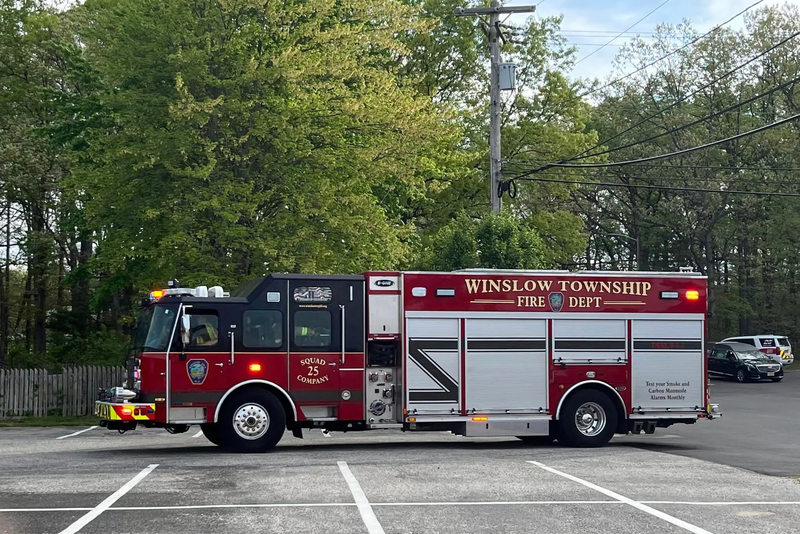
CAMDEN COUNTY, N.J. (KYW Newsradio) — The fire department in Winslow Township, Camden County, is consolidating three of its volunteer fire stations into one. The fire chief says the department is dealing with a "critically low" volunteer staff because recruiting, these days, is very difficult.
The department comprises volunteer and paid firefighters.
When Chief Marc Rigberg started volunteering at the Winslow Township Fire Department in the 1990s, there were 140 others like him, among nine stations. Now, he says, there are 35 active volunteers among four stations — and only 24 of them are considered “fully qualified,” to perform all duties, for reasons including age and lack of training.
Rigberg says that's a barrier to recruitment, because training is time consuming.
"In the '90s, when I went through the fire academy, we were at about 70 hours to get a Fire I certification," he said. "That’s now about 200 hours."
Rigberg says they have consolidated operations from six to three facilities, but because they have full-time, paid firefighters, response times are still under 10 minutes, which he says is good for the 60 square miles they cover. But with more homes constantly being built, he says, they need help filling the ranks.
“We’ve kind of done as much as we can financially afford or legally afford to do, because they are volunteers, they’re not employees, and there are certain rules and regulations.”
Rigberg said Tansboro, Albion and Elm stations will close by Dec. 31 and merge with the Cedar Brook Station.
The department will hold community meetings to explain the plan further. The dates of those meetings have yet to be announced.
Finding incentives
Senator Paul Moriarty represents Winslow Township. He says this is an issue being felt all over the state and lawmakers are taking action to fix it by unanimously advancing three bills through the law and public safety committee. The overall goal is to retain and recruit more volunteers with tax credits.
He says the package of bills provides financial incentives for volunteers. One is a $2,000 income tax credit, another is a 15% property tax credit, and the third is a credit for volunteers using their personal vehicles to respond to calls.
He says these credits are meager in comparison to what it would cost if every town had to convert to a fully paid firefighter staff.
There’s no date set yet for a full vote.
